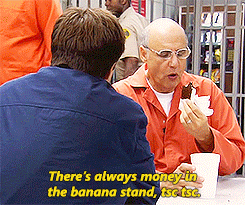
0 result
Last summer was an insane one for investors and startups. It felt like deals were getting done every hour (and they probably were). This summer has been a completely different story. Many investors that I’ve been speaking to are telling me that most capital allocators have largely been taking the summer off to let things settle after a tough first half of the year — and probably take a much deserved vacation after last year’s craziness.
But, just when things seemed quiet on the VC-front, one of the biggest stories in the VC and startup world dropped.
Let’s get to it.
👂The record scratch heard throughout the startup community was that Adam Neumann — the founder that may be more well known for how he almost tanked WeWork than for founding it — raised $350 million for his new startup.
The backer? Andreesen Horowitz, one of Silicon Valley’s leading VC firms overseen by the influential Marc Andreesen.
It took the startup community by storm for a few reasons:
So, why did Andreesen make this move? He, and those at his firm,had to know it would generate backlash.
But — and bear with me here — digging in deeper, it may actually make a lot of sense. This is not an endorsement (or an indictment) of the decision, but I do think it’s worth looking at why they made this decision.
🍀If first time’s a charm, second time can’t be luck. The truth is that entrepreneurs starting their second companies have a much easier time raising money — even if the first company failed.
Just like your parents told you to pick yourself up after falling down, VC’s believe repeat founders will have already learned some of those hard lessons during the first go around (both the good and the bad). Just look at Parker Conrad with his new venture Rippling, which is flourishing and relatively free of bad press after Zenefits topped the bad-news charts in Silicon Valley (it should be noted a16z invested in Zenefits, but not Rippling 🤔).

Yes, a lot of what Neumann did during his time at WeWork is laughable (and was good enough fodder for Jared Leto and Apple). But Marc Andreesen may have realized that if Neumann eliminated the, let’s say, top 20% of his newsworthy antics and epic mistakes that he made while running WeWork, then things may have ended up quite differently for him.
Afterall, WeWork is a pretty damn good product (that still exists), and may be even more relevant today after the pandemic made remote-work the norm. Plus, many of us startup folk have likely been customers at one point or another.

🏠 Truthfully, real estate is rarely a bad business. I don’t know exactly what Neumann’s new startup, Flow, is offering because it hasn’t been announced. But by piecing together everything I have seen, it seems like he’s creating WeLive.
Basically, he’s taking the WeWork model and applying it to residential apartment buildings. My guess is that he’ll buy a lot of large apartment buildings, renovate them to be WeWork-esque, and add a lot of amenities for residents to entice people to rent. On top of renting, he’ll likely create a membership model where Flow residents can travel to other Flow buildings in other cities and stay like a Sonder/Airbnb model.
Again, given the decentralization trend the last few years — aka people moving out of big, expensive cities — this may not be a terrible idea.
Of course, I will admit that this could all backfire and Flow may end up with bro-inspired frat-pads that wreak havoc on neighborhoods and cities. But, from a purely consumer perspective, it sounds like a pretty good idea and I get why Andreesen thinks so too.
The valuation isn’t as crazy as it sounds. Knowing the potential downsides to backing Neumann, why did Marc Andreeseen decide to write a $350M check? Well, this wasn’t a traditional “seed” round that many of us are familiar with.
Neumann has been rumored to be buying apartment properties all over the southeast U.S. over the last couple of years. It’s more than likely that Flow is now the owner of those properties. While a $1B pre-launch startup valuation sounds crazy, we should be looking at the valuation of those apartment complexes to understand how Andreesen is valuing Flow.
Even if Flow fails, there will be residual value in those properties, offering much more downside protection than a traditional VC early stage funding round.

👑 Lastly, maybe quirky entrepreneurs are still in right now. Elon Musk may be the most controversial entrepreneur in history, but you can’t deny that his companies have done some amazing things. Perhaps Marc Andreesen saw a bit of Musk in Adam Neumman.
So, how will all this end? I have no idea. I realize that based on historicals and what we know about Neumann, this could all go up in flames and we’ll get more Leto in season 2 of “WeCrash.” Regardless, I’ve got my popcorn ready and am excited to see how this all unfolds.
I’m always down to debate and discuss more — feel free to hit me up on Twitter @viejep or reply to tell me why I’m wrong.
Things we’re digging